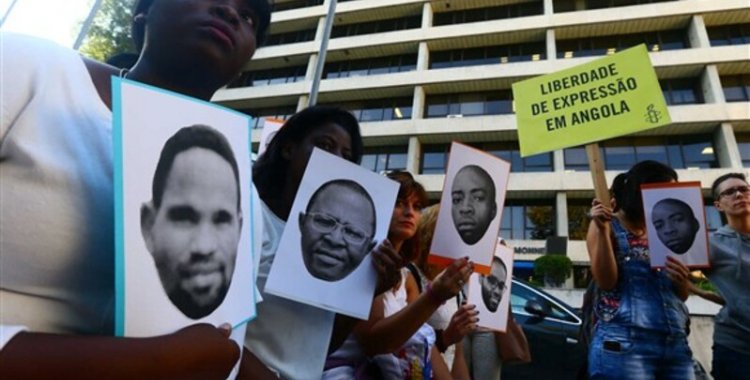In the auditorium of the Pauline Sisters, in Luanda, dozens of young activists reflected on the right to demonstrate, with the motto being March 7, 2011, when there was an attempt to protest against the government of then President José Eduardo dos Santos, who culminated in the arrest of 12 people, including activist and rapper Luaty Beirão and journalists.
Margareth Nangacovie, a lawyer and professor, said that the right to demonstrate in Angola happens when it is favorable to vested interests, but "does not leave" if it is a group of young activists like the ones who gathered today.
"This is characteristic of an autocratic context where authoritarianism serves to prevent the weakening of power and confrontation with the system", which, she underlined, was proved by the testimonies heard in the auditorium in Luanda.
"We are in a state where the right to demonstrate suffers serious restrictions, limitations, when these protesters are not aligned with the dominant agenda", she pointed out.
Among the audience, a young man, Paulo Evangelista, accused the current President, João Lourenço, of being "more of a dictator than José Eduardo dos Santos", who governed Angola for 38 years, but for Margareth Nangacovie it is a question of styles : "Some repressive measures, in this context, seem to be more intense, but I wouldn't know how to level the degree of repression between one period and another".
"I think it will progressively get worse because the political conditions of the party itself are also getting worse, the social conditions are getting worse, the economic conditions are getting worse... all this puts a lot of pressure on the regime at different levels, which which results in the intensification of fear and the need for the regime to protect itself against these threats", commented the university professor.
In an interview with RFI, last week, João Lourenço considered "the expression 'repression' very strong", stressing that Angola is not a repressive state.
"But as we have all come to see, the demonstrations are not always as peaceful as one would wish. The bad thing would be, as it was in the past, that there were never demonstrations, the demonstrations were considered prohibited. This is not the case, the demonstrations in Angola are not prohibited and proof of that is that every weekend there are demonstrations", he said.
Ilídio Manuel, a journalist, who says he was also in the sights of the authorities and was not arrested because "it was going to be too noticeable", regretted that, in the morning, the police went to the auditorium to find out who was going to participate in the act, stating that the "strategy is divide and rule and intimidate".
"How is a country concerned about activists who go to demonstrate but do not look to the courts", he was indignant.
The activist and spokesman for the Third Division Intervention Movement, Hitler Samussuku confirmed the police visit, complaining of pressures due to the initiative's realization.
"They blackmailed the mothers (of the Pauline Sisters) who started calling me at 7:30 am to say that there were a lot of police (nearby) and that police cars would probably show up, but we already knew and we know that there is nothing illegality, we were just reflecting and it fits even in academic reflections", he said.
He also regretted that the demonstrations are systematically stopped, thanks to administrative "schemes" "well set up that lead the police to appear on the spot to make the protests unfeasible, due to lack of response from the provincial governments".
"Citizens who want to protest against poverty, against unemployment due to the implementation of municipalities, the Government does not allow it, it does not even allow concentration", he said.
For the activist, who ran in the previous elections as part of UNITA's lists, "the repression of demonstrations is part of the regime's nature, the word demonstration bothers the Government", adding that arrests take place at the place of concentration or organizers are caught even at home.
"It would be good form for the secret service agents who were here to watch (learn) to better sustain their perception of the activists and the demonstrators or the demonstrations", challenged Hitler Samussuku.
Political scientist Olivio Kilumbo, elected deputy on the UNITA lists, spoke about the importance of preserving institutions, "necessary to create a new stage after dismantling yesterday's rottenness", and warned that, "in an autocratic regime", those who fight against the regime must know how to adapt its strategies and reinvent itself, claiming to be pacifists.
Alcides Mulemba, a young man from the Paraíso neighborhood, considered one of the worst in Luanda, said that "no one is happy with the MPLA", the party that has governed Angola since independence in 1975, and said he was "willing to die so that future generations can have a better future".
In Matias Chipipa's opinion, young people are being killed "from the point of view of education", for which he defended the importance of literacy and knowing the laws for the new generations, tools that should be taken to the communities.
The initiative was organized by the Mudei Civic Movement and by the Third Division Movement.







